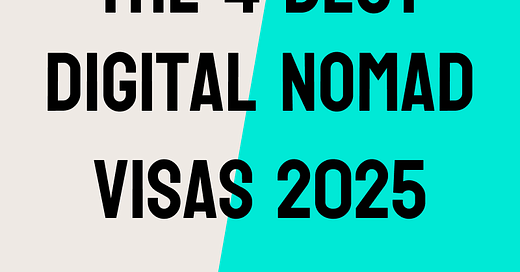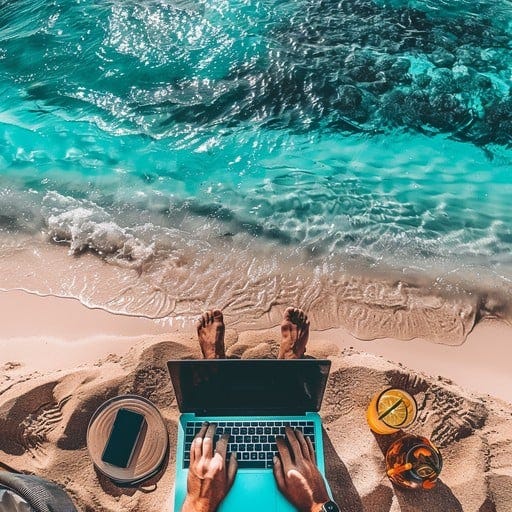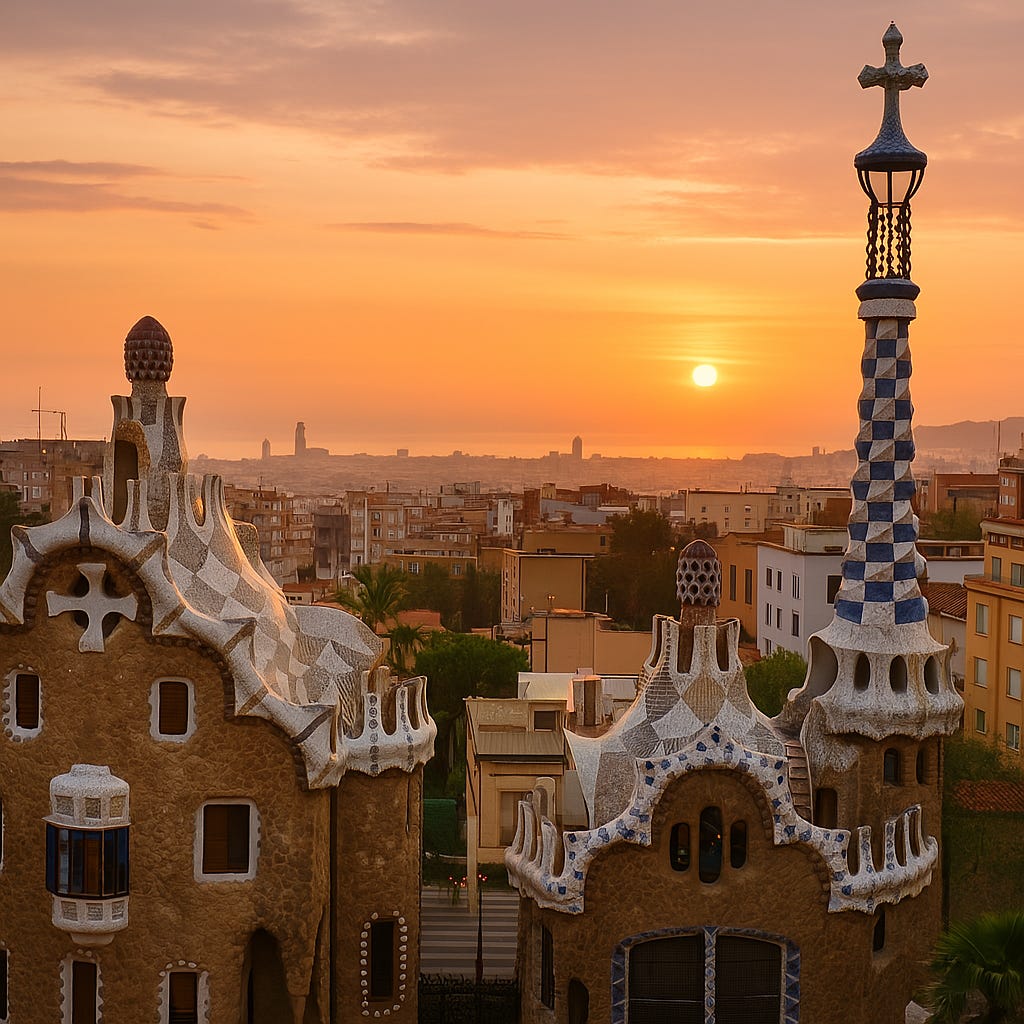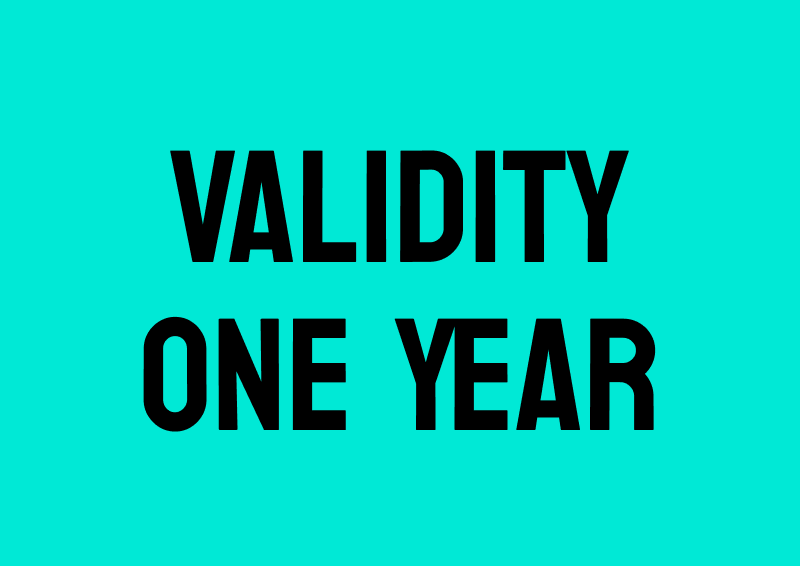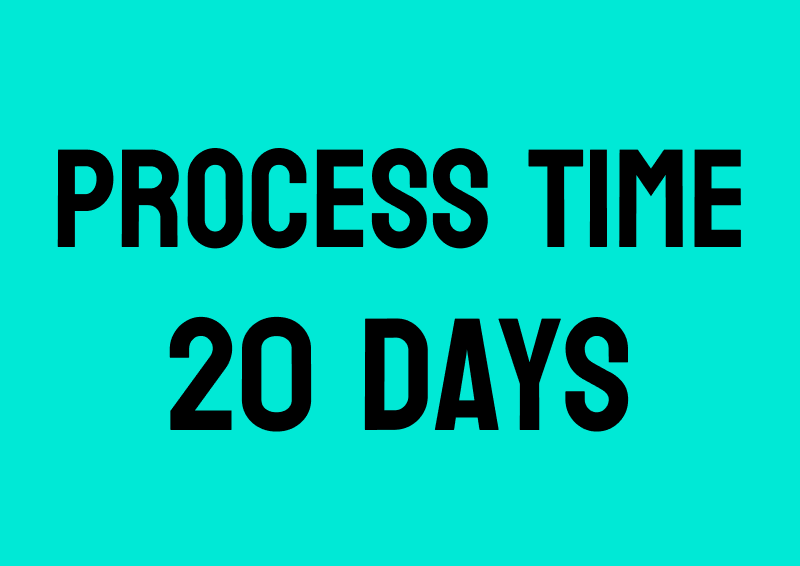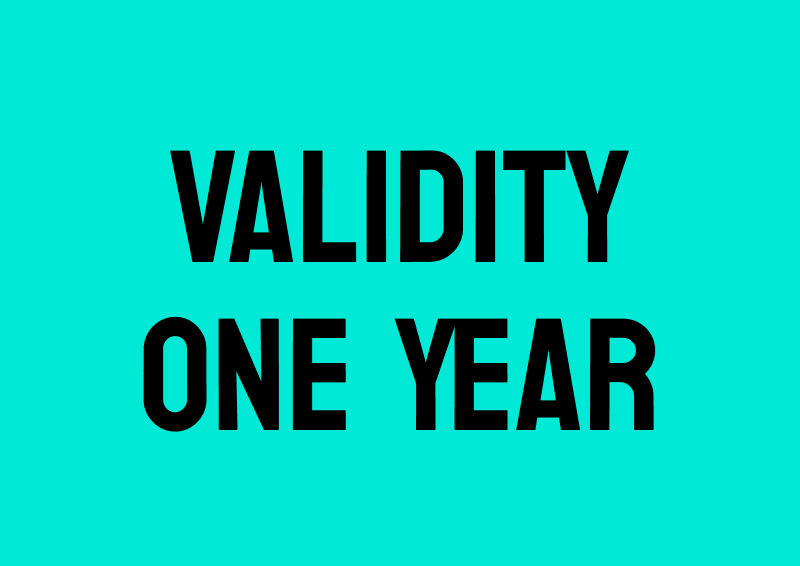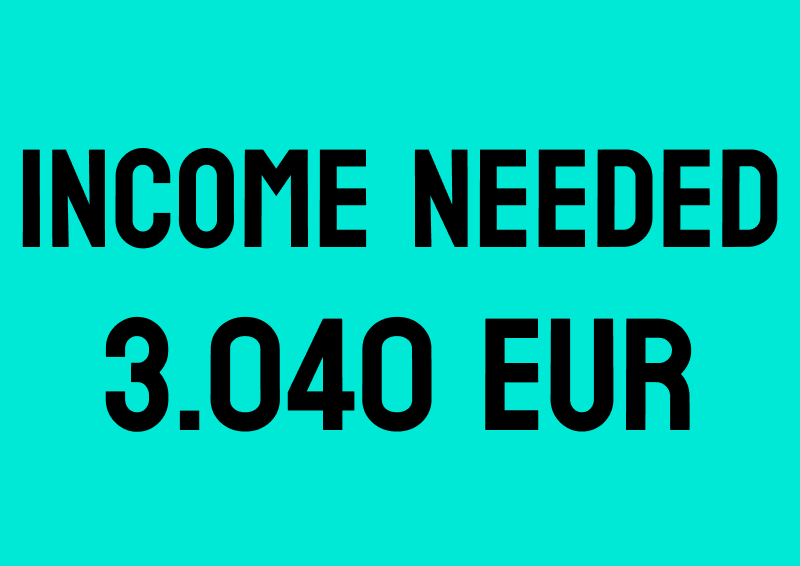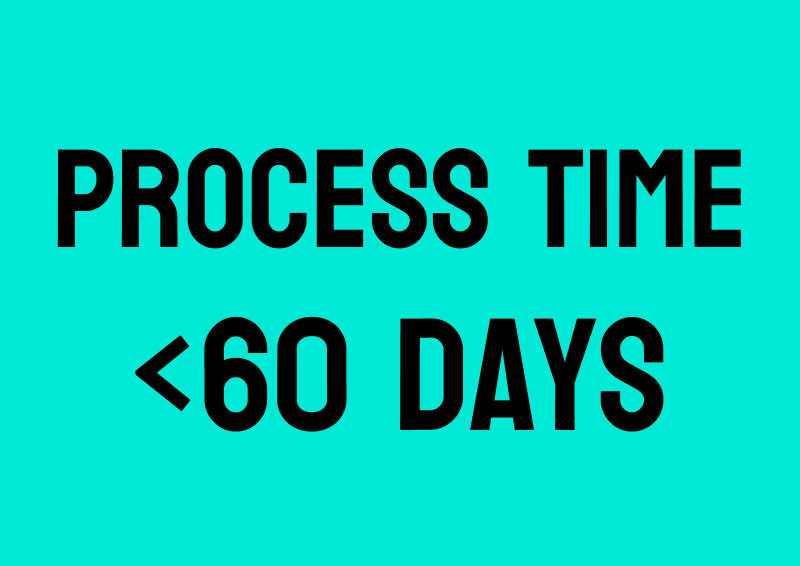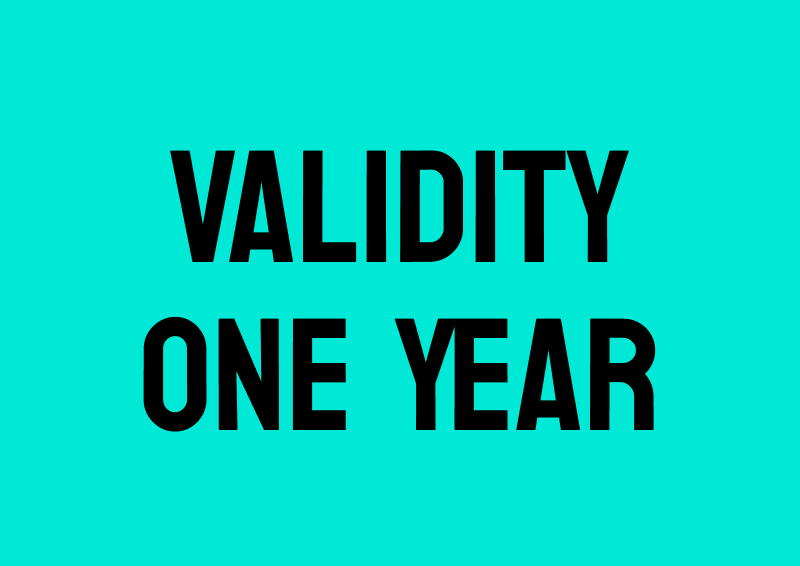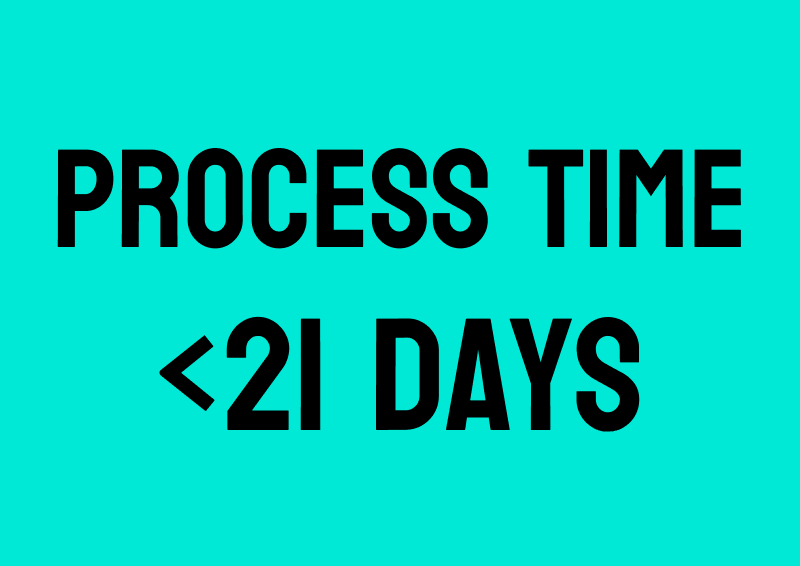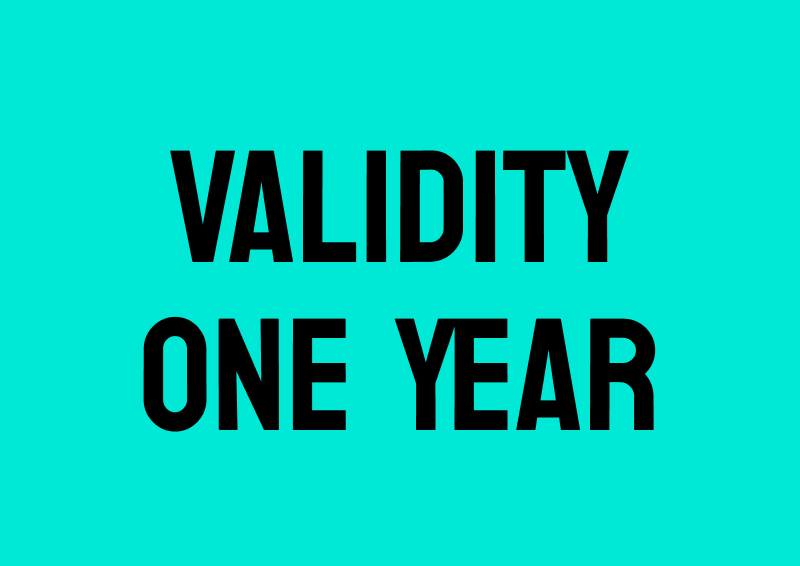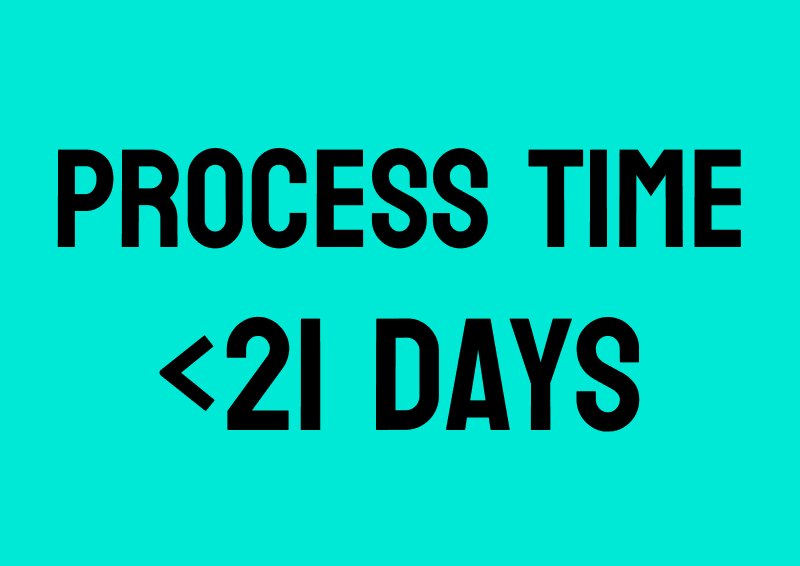Welcome to Digital Citizen 👋
After building businesses across multiple countries, one thing became clear:
Success isn’t tied to one system, one location, or one way of thinking.
In today’s world, you can design life on your terms—globally, intelligently, and with intention.
Digital Citizen is your guide to living smarter, working freely, and navigating a borderless world with clarity.
Subscribe to join a growing community of independent minds building a future without permission.
Live by the Ocean. Pay Less Tax. Keep Your Job.
In 2025, more countries than ever are welcoming remote workers — not just with open arms, but with actual visas. Digital nomad visas let you stay longer, live legally, and in many cases, benefit from friendly tax rules.
But not all offers are created equal.
Some places look good on Instagram but fall apart in reality. Others fly under the radar yet offer everything you need to build a better life abroad.
This guide breaks down 4 of the most attractive options right now — and how to do it right.
Freedom Needs a Framework
Remote work isn’t just a passing phase — it’s transforming how people live, earn, and think about freedom.
A 2023 Statista report showed that over 28% of the global workforce now works remotely at least part-time. And platforms like Nomad List report record-high growth in digital nomad movement, with cities like Lisbon, Mexico City, and Bangkok seeing surges of 200–400% in remote worker population over the past 5 years.
People no longer want to be tied to one office, one city — or one country. Especially when the only real requirement is a laptop and stable Wi-Fi.
But freedom without structure? That’s where things fall apart.
Overstayed tourist visas.
Confusing tax residency.
Limited access to banking, healthcare, or even SIM cards.
It’s fun until it’s not. That’s where digital nomad visas come in.
These are government-backed programs that give remote workers the legal right to live in a country while working for a foreign employer or running an online business. They bring the freedom and the foundation.
As of early 2025, more than 66 countries introduced or improved remote work visa options — from Spain’s 5-year offering to Mauritius’ free 12-month stay.
For many, these visas are the green light to a new chapter: less stress, more sunlight, better food, and — most importantly — a feeling of ownership over your life.
If you’re even thinking about changing your environment in 2025, this list gives you your next move.
Before we dive in, two quick notes:
Why Thailand’s DTV Visa isn't included (yet): While it has generated buzz, the program remains unclear and inconsistently implemented. Despite many people reportedly using it, the fine print on taxes, renewals, and dependents hasn’t been formalised. Until the framework is stable and proven, I call it a wait-and-see.
Why this list focuses on "digital nomad visas" only: We're not covering company setups (like U.S. LLCs), tourist visas with border runs, or long-stay retirement/elite visas. This list is for clean, government-approved ways to live abroad as a remote worker — no company setups, with separating e.g the company and the living location (those I will write about as well though, in the future).
Where people mess it up
Most people only look at the surface:
"Where can I surf and sip coconuts?"
"Which country has the lowest tax rate?"
"Where’s the fastest Wi-Fi and cheapest rent?"
All valid questions — but they miss the bigger picture.
Here’s what goes wrong:
Not understanding the visa's limits. Some digital nomad visas don't allow dependents, business activities within the country, or even local bank access.
Ignoring tax implications. Just because you’re not taxed in your home country doesn’t mean your host country won’t tax you. A digital nomad visa doesn’t always mean tax-free.
Short-term thinking. Bouncing from visa to visa can seem fun — but many nomads end up exhausted, lonely, or struggling with burnout.
Over-romanticizing places. Instagram isn’t real life. Cheap rent doesn’t matter if the air quality is trash or your internet drops every 20 minutes.
The goal isn’t to chase freedom blindly — it’s to design a life that works long-term.
What to look for
When choosing a country, think about three layers:
Visa Practicalities
How long is it valid?
Can you bring family?
Is it renewable?
What income do you need to prove?
Tax Setup
Does the country tax foreign income?
Are there thresholds or special exemptions?
Can you register a company or open a bank account easily?
Lifestyle Compatibility
Time zone: Can you work your hours?
Climate: Can you thrive there year-round?
Community: Are there other remote workers or locals you vibe with?
Costs: Are you living comfortably or just scraping by?
The best country for someone else might be a nightmare for you. So be honest about your priorities.
Top 4 Digital Nomad Visas for 2025
These aren’t just the most popular destinations — they’re the ones where governments actually built a system for remote workers to live and thrive.
Each one offers a different flavour of life abroad: from Europe’s cultural depth to the tax-free hustle zones of the Gulf, or tropical islands made for balance and reset.
Whether you're optimising for lifestyle, tax, climate, or just a change of pace — these are four of the best setups to explore in 2025.
🇪🇸 Spain for Digital Nomads: Full Breakdown
Visa Practicalities
Spain’s digital nomad visa offers a clear legal path with long-term potential. It’s designed for remote workers who want both flexibility and residency security.
Duration:
Initial visa is valid for 1 year, extendable up to 5 years via a residence permit.Income Requirement:
At least €2,400/month (200% of the Spanish minimum wage), plus more if bringing family.Processing Time:
Roughly 20 working days — though embassy timelines can vary by location.Renewable:
Yes. After the first year, you can renew in 2-year increments.Bring Family?
Yes — you can include spouse and children. You’ll need to show additional income: 75% more for a spouse, 25% per child.
Tax Setup
Spain’s tax rules can be favourable — if you qualify for the Beckham Law. You’ll need to understand the conditions clearly before relying on the benefits.
Foreign Income Tax Rate:
If eligible, you pay 24% flat tax on Spanish income, and foreign income is exempt under the Beckham Law — for up to 6 years.Eligibility Caveat:
You must not have been a tax resident in Spain in the last 5 years.Can You Open a Local Bank Account?
Yes — often required for renting property or utility contracts.Can You Register a Business?
No — the visa is for remote workers earning from foreign clients or employers, not for local freelancing or business.
Lifestyle Compatibility
Spain offers a rich mix of culture, convenience, and climate. Whether you want beach, mountains, or cities — you’ll find a home here. Personally, I love Barcelona as a hub. But depending on your taste, Spain offers plenty of cool cities to work from.
Time Zone:
GMT+1 (CET) — great for EU business hours, workable for US East Coast.Climate:
Diverse. Coastal regions like Valencia and Malaga are sunny and warm; inland cities get hot summers and cold winters.Community:
Expats and nomads thrive in Barcelona, Madrid, Valencia, and Canary Islands. Lots of meetups, coworking, and international networks.Cost of Living:
€800–1,200/month for a one-bedroom in a good area
€2,000–2,500/month total budget for comfort
Cheaper options inland or in smaller towns
📝 How to Apply
The application process is relatively straightforward if you have your documents in order. You can apply from Spain or your home country.
Where to Apply
From abroad: Apply through a Spanish consulate in your country.
From Spain (on a tourist visa): You can apply directly for the residency permit.
Required Documents
(These may vary slightly by consulate, but typically include the following. For a consulate-specific checklist, see the London Consulate’s guide.)
Proof of income (bank statements, contracts)
Proof of remote work (employment letter or client contracts)
Criminal background check
Private health insurance valid in Spain
Passport + proof of accommodation in Spain
Timeline
Typically 20–30 working days for processing
Best to start prepping 2–3 months in advance
For a full walkthrough, check this step-by-step guide from Rippling or the Global Citizen Solutions overview
Summary
Spain gives you a lifestyle upgrade and legal peace of mind. It’s one of the most well-rounded digital nomad visa destinations in 2025 — especially if you want Europe without the grey skies.
🇵🇹 Portugal for Digital Nomads: Full Breakdown
Visa Practicalities
Portugal’s D8 visa (often called the Digital Nomad Visa) is one of the most accessible and flexible programs in Europe. It’s made for remote workers, freelancers, and independent professionals who want legal residency and European lifestyle perks.
Duration:
Initial visa is valid for 1 year, then renewable for 2-year residence permits. After 5 years, you can apply for permanent residency or citizenship.Income Requirement:
Around €3,040/month (4x Portuguese minimum wage) — the most recent updates increased the threshold from previous levels.Processing Time:
Expect 30–60 days depending on the consulate and whether you're applying inside or outside PortugalRenewable:
Yes — can be extended in 2-year blocks.Bring Family?
Yes — spouses and dependents can be added to the application with proof of additional financial means.
Tax Setup
Portugal’s tax offering used to be elite with the NHR (Non-Habitual Resident) regime. Although the original NHR is being phased out (read an update from April 2025 here), a new version still provides decent benefits for foreign workers.
Foreign Income Tax Rate:
Under the old NHR: 0–20% on qualifying income.
Under the revised rules: some exemptions remain, but it’s not as favorable as it once was.Eligibility Caveat:
The new “NHR 2.0” (transitional rules) is still evolving — consult a Portuguese tax advisor if you want to optimize.Can You Open a Local Bank Account?
Yes — you’ll need one to rent property and complete visa requirements.Can You Register a Business?
Yes — Portugal supports individual entrepreneurship, though you’ll need to structure it for international clients if you're under the D8 visa.
Lifestyle Compatibility
Portugal blends ocean views, laid-back culture, and modern amenities. It’s a favorite among digital nomads for a reason — high quality of life, low stress, and strong community.
Time Zone:
GMT (same as UK) — ideal for European clients, decent overlap with North America.Climate:
Mild winters, sunny summers. Lisbon and the Algarve are warm year-round. Northern Portugal gets cooler.Community:
Remote workers love Lisbon, Porto, Ericeira, and Madeira. Tons of coworking hubs, expat events, and nomad-friendly cafés.Cost of Living:
€700–1,100/month for a one-bedroom apartment
€1,800–2,300/month total for a comfortable lifestyle
Lower costs in smaller towns or inland areas
📝 How to Apply
The D8 visa application requires a bit of paperwork but is manageable. You can apply from abroad or inside Portugal if already there on a tourist visa.
Where to Apply
From abroad: Apply via a Portuguese consulate in your country.
From inside Portugal: Apply directly at the SEF (Foreigners and Borders Service) office.
Required Documents
(Varies slightly by location, but usually includes:)
Valid passport
Proof of income (last 3–6 months)
Employment contract or proof of freelance/remote work
Portuguese tax number (NIF)
Portuguese bank account
Lease agreement or proof of accommodation
Health insurance
Criminal background check
Timeline
30–60 days depending on where you apply
Some consulates book out months in advance, so start prepping early
For a comprehensive guide, see here
Summary
Portugal is still one of the best setups in Europe. Even with shifting tax policies, the D8 visa offers legal residency, lifestyle perks, and a springboard to permanent residence or even EU citizenship. It’s the slow-living, surf-between-calls dream — with structure to back it up.
🇲🇺 Mauritius for Digital Nomads: Full Breakdown
Visa Practicalities
Mauritius offers a free, low-barrier visa called the Premium Visa, designed specifically for remote workers, freelancers, and retirees who want to stay longer than the typical tourist window.
Duration:
Valid for 12 months, with the option to renew annually.Income Requirement:
Minimum $1,500/month for a single applicant.
If you're applying with family, you’ll need to show higher combined income (exact figures vary, but generally $2,000–2,500+).Processing Time:
Fast — usually within 2–3 weeks.Renewable:
Yes — can be renewed yearly if you still meet the criteria.Bring Family?
Yes — you can apply as a household unit with supporting financial documents.
Tax Setup
Mauritius makes tax planning simple for nomads. As long as you earn from outside the country, you won’t be taxed on that income.
⚠️ Nice to know: That principle is called “territorial taxation.”
Under a territorial tax system, only income earned within the country is subject to tax. Foreign-sourced income — like what you earn from a remote job or overseas clients — is typically exempt from local taxes, as long as it isn’t brought into the country in a way that triggers domestic rules (like remitting to a local bank account).
But back to Mauritius:
Foreign Income Tax Rate:
0% tax on foreign-sourced income if it's not remitted to a local bank account.Eligibility Caveat:
To remain exempt, you must maintain foreign income outside of Mauritius. If you bring it in, it may become taxable.Can You Open a Local Bank Account?
Yes — but be cautious. Bringing income into Mauritius may trigger local tax obligations.Can You Register a Business?
Not under this visa — it’s intended for non-Mauritian work and passive income, not local economic activity.
Lifestyle Compatibility
Mauritius isn’t just a tropical postcard — it has solid infrastructure, a high literacy rate, and political stability. Think of it as a peaceful base for remote life, with a strong undercurrent of growth.
Time Zone:
GMT+4 — works well if you serve clients in Asia, Australia, or the Middle East. Tougher for U.S. hours. If you work for European clients, you have some focus time in the morning (personally, I love that fact).Climate:
Tropical and sunny year-round. Expect warm temps (25–30°C) and a rainy season between Jan–March (which you can use, to travel to Asia).Community:
Smaller but growing. There are pockets of expats, especially around Grand Baie, Tamarin, and Black River. Co-working spaces and wellness retreats are popping up.Cost of Living:
$800–1,200/month for a one-bedroom
$1,800–2,200/month total for a comfortable life
Imported goods can be pricey, but local food and transport are cheap
📝 How to Apply
Mauritius has one of the easiest digital nomad application processes — all online, no embassy visits.
Where to Apply
Online via the official Economic Development Board (EDB):
Required Documents
Valid passport
Passport-sized photo
Proof of income (bank statements or proof of funds)
Travel and health insurance
Proof of accommodation in Mauritius
Letter explaining your remote work or income source
Return ticket or travel itinerary
Timeline
14–21 days if documents are clear
Entire process can be done remotely
Summary
Mauritius is a tropical wildcard: clean, calm, affordable — and easy to say yes to. If you're looking for ocean air and deep focus, this might be your most peaceful year yet.
🇦🇪 United Arab Emirates for Digital Nomads: Full Breakdown
Visa Practicalities
The UAE offers a Remote Work Visa that gives digital nomads the chance to live in Dubai (or elsewhere in the UAE) while working for a company or clients abroad. It’s simple, fast, and backed by world-class infrastructure.
Duration:
Valid for 1 year, with the option to renew annually.Income Requirement:
Minimum $3,500/month. You’ll need to show salary slips or proof of consistent freelance income.Processing Time:
Usually 10–20 working days, depending on documentation and volume.Renewable:
Yes — must continue to meet financial and employment criteria.Bring Family?
Yes — you can sponsor your spouse and children with proof of higher income and valid accommodation.
Tax Setup
One of the biggest draws of the UAE is its tax-free personal income environment. What you earn abroad is yours to keep.
Foreign Income Tax Rate:
0% — no personal income tax in Dubai or across the UAE.Eligibility Caveat:
There are no income taxes, but keep in mind that VAT (5%) applies to many goods and services locally.Can You Open a Local Bank Account?
Yes — as a resident under the visa, you can open personal accounts at UAE banks. Side note: Don’t. From personal experience, this is incredibly annoying. I recommend you use Fintechs, like Wise instead.Can You Register a Business?
Not under the remote work visa — but the UAE has freelancer licenses and free zone companies if you want to expand.
Lifestyle Compatibility
Dubai is modern, hyper-efficient, and incredibly international. It’s perfect for those who want hustle, networking, and amenities — though it’s not the cheapest option.
Time Zone:
GMT+4 — good overlap with Asia, Europe, and even early U.S. hours.Climate:
Hot desert climate. Winters (Nov–March) are beautiful; summers (June–Sept) are extremely hot (~45°C). Personally, I would leave the UAE between June and August.Community:
Massive expat presence. Co-working spaces, networking events, and startup hubs thrive — especially in areas like Dubai Marina, Downtown, and Business Bay.Cost of Living:
$1,500–2,500/month for a 1-bed apartment in a good area
$3,500–5,000/month for a comfortable lifestyle
Prices vary heavily by lifestyle choices
📝 How to Apply
The UAE’s remote work visa is streamlined and fully digital. Most applicants go through Visit Dubai’s remote work portal.
Where to Apply
Online via remote work portal
Required Documents
Valid passport (minimum 6-month validity)
Proof of employment (or client contracts if freelance)
Proof of income (minimum $3,500/month)
Bank statements (3 months)
Health insurance valid in the UAE
Passport-sized photo
Timeline
10–20 working days on average
Fully digital process — no need to visit a consulate
Summary
If you’re ready to level up your environment, Dubai offers speed, scale, and serious benefits — especially if you want to keep 100% of what you earn. It’s not the budget option, but it’s built for ambition.
🧳 Wrapping It Up
You don’t need to escape your life — you can redesign it.
Each of these countries offers a different flavor of remote work freedom. Whether you're craving city energy, tropical stillness, or European café culture, there’s a visa that can back your vision with legal clarity and lifestyle upgrades.
But no setup is perfect. Consider:
Your time zone and work rhythm
Tax implications (especially if you're from a high-tax country)
Community — do you want solitude or connection?
Cost of living vs. what you actually value
The best digital nomad setup is the one that makes your life better — not just more Instagrammable.
Let this guide be your starting point.
Now the question is: where will you go first? 🌍
If you’re enjoying Digital Citizen, tap ❤️ and 🔄 at the top to help more curious minds find their way here. It means a lot.


